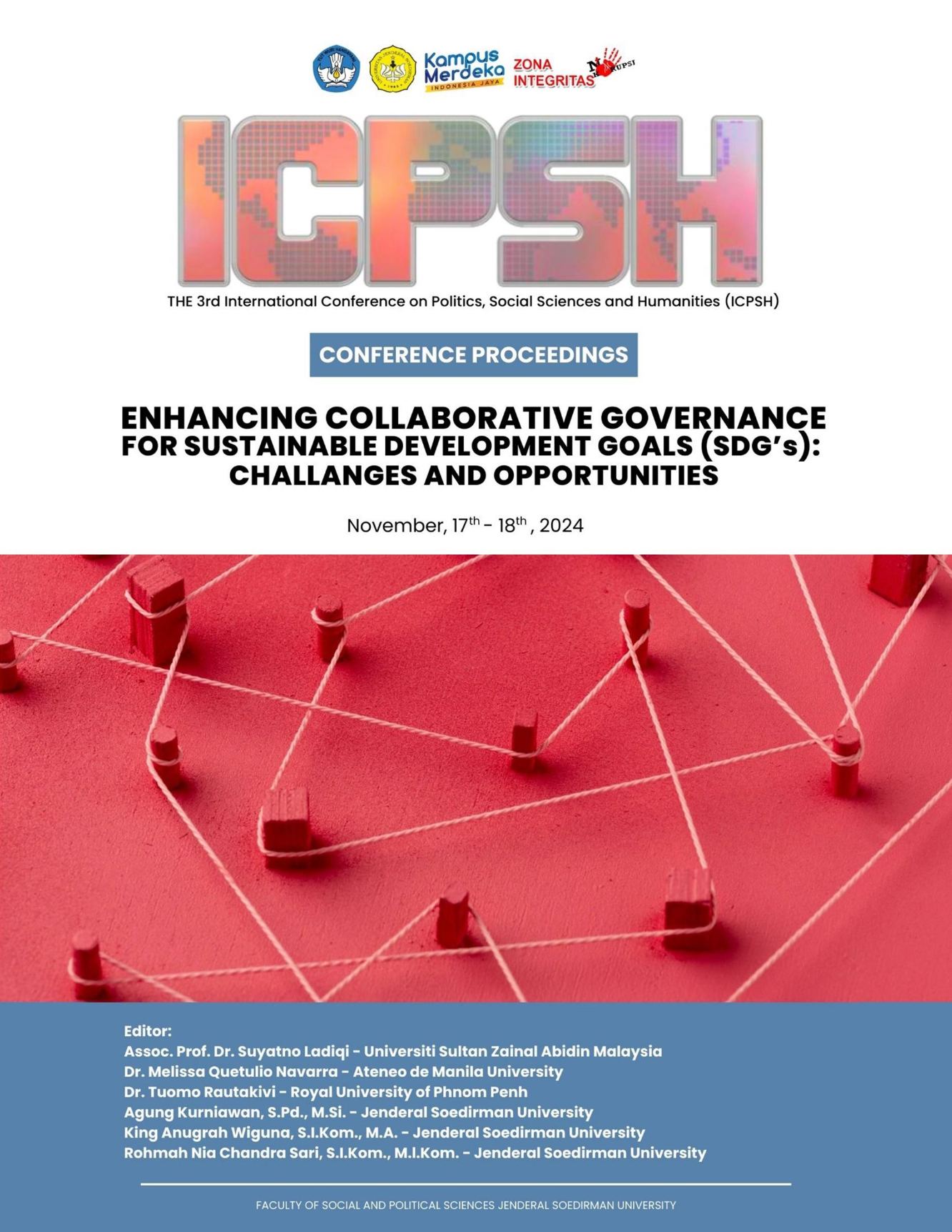Enhancing Deliberative Governance In Labour Protection Policy (The Case Of Banyumas’s Landscape)
Abstract
This study aims to test and explore the deliberation models and interaction patterns of
bureaucracy and policy actors that develop in the dialogue forum-media in the implementation
of labor protection policies known as deliberative governance. With a descriptive qualitative data
analysis method and in-depth interviews based on case studies in Banyumas, Central Java and
available labor regulation documents, 4 (four) deliberative governance models were found in
labor protection policies. First, the elite deliberation governance model, namely deliberations
initiated by and among the executive elite, Second, the people's representative deliberation
model attended by regional legislative members and political party actors, and Third, the
deliberation model driven by local labor/business organizations and Fourth, the large deliberation
model, namely a forum that presents all stakeholders and actors in one large forum called the
"Labor Rembug Forum" (FRB) or "Joint Deliberation on Employment" (MBK). From the research
results, it is concluded that a grand deliberation involving all actors is able to accelerate the
implementation of labor protection policies so that it can be a new alternative to accelerate policy
implementation. By increasing the quality and quantity of deliberation at various levels, it has
been proven to be able to encourage employers, workers and legislators to reach a new consensus,
namely a commitment to register workers in the social protection program. Here, the regional
government together with the Employment Social Security Agency must be able to monitor the
consensus and commitment of all policy actors so that the agreement is truly realized so that
labor protection is increasingly real and is able to improve the welfare of workers as a whole.



